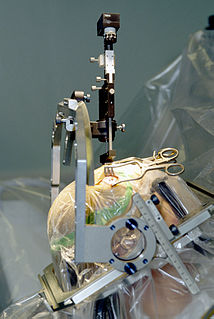
Neurosurgery or neurological surgery, known in common parlance as brain surgery, is the medical specialty concerned with the surgical treatment of disorders which affect any portion of the nervous system including the brain, spinal cord and peripheral nervous system.
The study of neurology and neurosurgery dates back to prehistoric times, but the academic disciplines did not begin until the 16th century. From an observational science they developed a systematic way of approaching the nervous system and possible interventions in neurological disease.
Ralph Bingham Cloward was an American neurosurgeon, best known for his innovations in spinal neurosurgery. Cloward is known for the development of the Posterior Lumbar Interbody Fusion and Anterior Cervical Discectomy and Fusion. Cloward moved from Chicago to Hawaii in 1938, becoming the state's lone neurosurgeon. He is well known for his work treating victims of brain injuries after the Pearl Harbour attack in 1941.
Dr. H. Richard Winn is an American neurosurgeon and Professor of Neurosurgery and Neuroscience at Mount Sinai School of Medicine. Dr. Winn was Chairman of Neurological Surgery at the University of Washington School of Medicine from 1983-2002. Winn has made numerous contributions to the field of neurosurgery, specifically to the physiology of cerebral blood flow regulation and clinical studies of the natural history of cerebral aneurysms. A leading international Neurosurgical Prize is named after Dr. Winn.
Paul Bucy was an American neurosurgeon and neuropathologist who was a native of Hubbard, Iowa. He is known both for his part in describing the Klüver–Bucy syndrome, his academic life as a teacher in the neurosciences, and for his founding in 1972 and editing Surgical Neurology – An International Journal of Neurosurgery and Neuroscience" from 1972 to 1987.
Brian T. Andrews is a neurosurgeon specializing in pediatric neurosurgery, minimally invasive spinal surgery, brain tumors, neuro-oncology, neurotrauma, spinal stenosis and general neurosurgery. He is chairman of the Department of Neurosciences at California Pacific Medical Center and a founder of the California Pacific Neuroscience Institute.
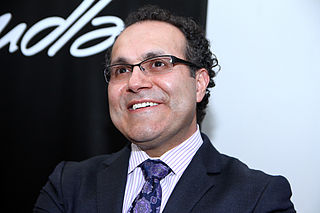
Alfredo Quiñones-Hinojosa is a Mexican-American neurosurgeon, author, and researcher. Currently, he is the William J. and Charles H. Mayo Professor and Chair of Neurologic Surgery and runs a basic science research lab at the Mayo Clinic Jacksonville in Florida. He was named as one of the 100 most influential Hispanics in the U.S. by Hispanic Business Journal in 2008; as 2014 Neurosurgeon of the Year by Voices Against Brain Cancer, where he was also recognized with the Gary Lichtenstein Humanitarian Award; and by the 2015 Forbes magazine as one of Mexico's most brilliant minds in the world.
Ramamurthi Balasubramaniam was an Indian neurosurgeon, author, editor, a pioneer in neurosurgery in India and often recognized as the Father of Neurosurgery of India. He set up the Department of Neurosurgery at the Government General Hospital, Chennai in 1950, the Department of Neurosurgery at the Madras Medical College and founded the Institute of Neurology, Madras in the 1970s. He was awarded the Padma Bhushan and the Dhanvantri Award for his contribution to the field of Neurosurgery in India. He is also a recipient of the Lifetime Achievement Award of Madras Neuro Trust.
Albert Loren Rhoton Jr., was an American neurosurgeon and a professor specializing in microsurgical neuroanatomy. He developed and introduced a number of microsurgical techniques that improved the safety and effectiveness of neurosurgery, including the use of the surgical microscope in neurosurgery. He also designed many of the commonly used of microneurosurgical instruments, which bear his name. Such tools in use worldwide include the Rhoton Micro Dissectors designed for delicate work in the treatment of brain aneurysms and tumor resection.
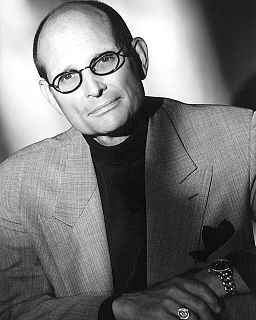
Michael L. J. Apuzzo is an American academic neurological surgeon, the Edwin M. Todd/Trent H. Wells, Jr. Professor Emeritus of Neurological Surgery and Radiation Oncology, Biology, and Physics at the Keck School of Medicine, of the University of Southern California. He is also editor emeritus of the peer-reviewed journals World Neurosurgery and Neurosurgery. He is distinguished adjunct professor of neurosurgery at the Yale School of Medicine, distinguished professor of advanced neurosurgery and neuroscience and senior advisor, at the Neurological Institute, Wexner Medical School, The Ohio State University, and adjunct professor of neurosurgery, Weill Cornell Medicine, Department of Neurological Surgery & Weill Cornell Brain and Spine Center.
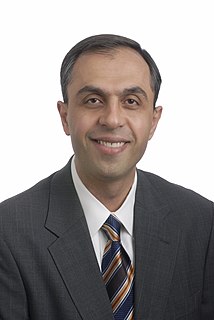
Aaron A. Cohen-Gadol is a professor of neurological surgery in the department of neurosurgery at Indiana University School of Medicine and a neurosurgeon at Indiana University Health specializing in surgical treatment of brain tumors and aneurysms. He performs removal of complex brain tumors via endoscopic techniques, which use the nasal pathways instead of opening the skull.

Theodore H. Schwartz is an American medical scientist, academic physician and neurosurgeon.

James Rutka is a Canadian neurosurgeon from Toronto, Canada. Rutka served as RS McLaughlin Professor and Chair of the Department of Surgery in the Faculty of Medicine at the University of Toronto from 2011 – 2022. He subspecializes in pediatric neurosurgery at The Hospital for Sick Children (SickKids), and is a Senior Scientist in the Research Institute at SickKids. His main clinical interests include the neurosurgical treatment of children with brain tumours and epilepsy. His research interests lie in the molecular biology of human brain tumours – specifically in the determination of the mechanisms by which brain tumours grow and invade. He is the Director of the Arthur and Sonia Labatt Brain Tumour Research Centre at SickKids, and Editor-in-Chief of the Journal of Neurosurgery.
Rahul Jandial, M.D., Ph.D. is an American, dual-trained brain surgeon and neuroscientist at City of Hope in Los Angeles, a hospital for cancer treatment designated as a Comprehensive Cancer Center by the National Cancer Institute. Jandial is an associate professor with expertise in the surgical treatment of cancers of the nervous system. His research focuses on brain tumors that arise from the spread of breast cancer cells into the brain (metastases).
Robert Wheeler Rand, Ph.D., J.D., M.D., was an American neurosurgeon, inventor, and Professor of Neurosurgery in the Department of Neurosurgery at the University of California Los Angeles (UCLA) from 1953 to 1989.

Antonio Bernardo is an Italian-American neurosurgeon and academic physician. He is a Professor of Neurological Surgery and the Director of the Surgical Innovations Laboratory for Skull Base and Microneurosurgery in the Department of Neurological Surgery at Weill Cornell Medical College. He has gained significant notoriety for his expertise in skull base and cerebrovascular surgery, and has published extensively on minimally invasive neurosurgery. He is a pioneer in the use of 3D technology in neurosurgery and a strong advocate for competency-based training in surgery.

Dr. Basant Kumar Misra is a neurosurgeon specialising in treating brain, spine, cerebrovascular and peripheral nervous system disorders, injuries, pathologies and malformations. He is the Vice-President of the World Federation of Neurosurgical Societies, and the former President of the Asian Australasian Society of Neurological Surgeons, and the Neurological Society of India. He is a recipient of Dr. B. C. Roy Award, the highest medical honour in India.
Linda M. Liau is an American neurosurgeon, neuroscientist, and the W. Eugene Stern Chair of the Department of Neurosurgery at the David Geffen School of Medicine at UCLA. Liau was elected to the Society of Neurological Surgeons in 2013 and the National Academy of Medicine in 2018. She has published over 170 research articles and a textbook, Brain Tumor Immunotherapy. She served as editor-in-chief of the Journal of Neuro-Oncology from 2007 to 2017.
The Asian Australasian Society of Neurological Surgeons (AASNS) is the inter-continental, non-governmental, learned society representing neurosurgeons of the Asian-Australasian region. It was founded in 1964 and is made up of twenty-eight national societies, totaling 60 percent of neurosurgeons globally. It is the largest of the five continental associations of the World Federation of Neurosurgical Societies. The official journal of the society is the Journal of Clinical Neuroscience.
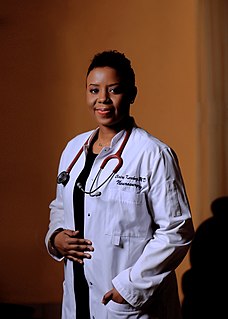
Claire Karekezi is a Neurosurgeon at the Rwanda Military Hospital in Kigali, Rwanda. As the first woman neurosurgeon in Rwanda, and one of six neurosurgeons serving a population of 13 million, Karekezi serves as an advocate for women in neurosurgery. She has become an inspiration for young people pursuing neurosurgery, particularly young women.








